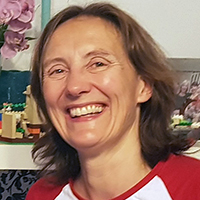UKH is the largest single university hospital in Germany and one of the leading university hospitals in Europe. With more than 13,000 employees, UKH is the largest employer in the Heidelberg area. UKH has more approximately 2,000 hospital beds. Each year, UKH treats more than 110,000 in-patients, 1.000,000 out-patients. The Department of Neurology of the UKH runs a 20 bed Stroke Unit and treats about 1.500 stroke patients per year. The Department of Neuroradiology performs more than 1200 interventional procedures per year, including 500 thrombectomies. Besides, UKH as one of the first centers worldwide introduced the concept of thrombectomy “drive the doc” which means that the neurointerventionalist drives to remote stroke centers to perform procedures on site where the patient is admitted. Thereby, more than 200 thrombectomies are additionally performed in a total 4 large remote stroke centers. UKH coordinates the regional stroke network FAST covering a catchment area of 4 million inhabitants.
Martin Bendszus leads and coordinates the clinical trial TENSION, a randomized, controlled, prospective, open label, blinded endpoint (PROBE) trial of thrombectomy in stroke patients with extended ischemic stroke lesions and patients presenting in a late time window, who are currently excluded from available effective treatment approaches. Imaging in acute stroke and stroke treatment has been a major research focus of the Department of Neuroradiology at UKH for decades, and Martin Bendszus authored numerous publications on acute stroke imaging and treatment. UKH will closely interact with VHIR and HMC-SU as well as a clinical research organizer and CUB to finalize the study protocol; aid the literature research, support the development of an electronic case record file (eCRF); obtain approval by the local ethics committee and competent authorities. UKH will screen and enrol acute ischemic stroke patients, provide clinical and neuroimaging data as well as cost and treatment effectiveness measures. UKH will support the adjustment and implementation of NORA, assist EMP in the analysis and design of treatment pathways, and perform continuous assessment to aid the adjustment ft he eprepare model data to refine and validate AI models, the structure and labelling of data, provide user requirements, test and validate the software and continuous evaluation of the interface and quality of the software tool.

